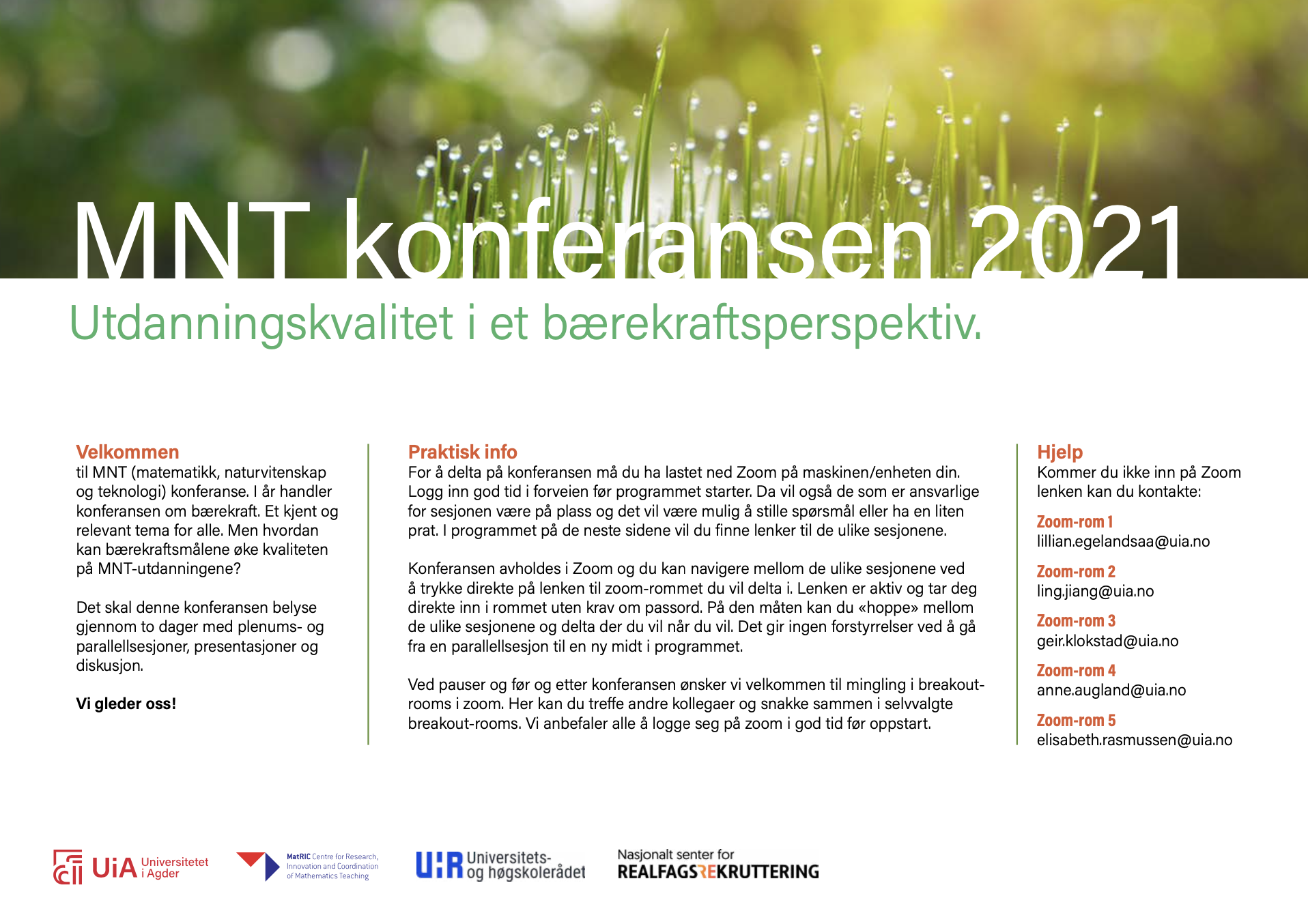Hvordan kan studentaktive vurderingsformer fremme selvregulert læring?
DOI:
https://doi.org/10.5324/njsteme.v5i1.3935Resumé
Det er et uttalt mål at studenter skal bli selvregulerte lærere, og forskningslitteraturen trekker frem at formativ vurdering er viktig for utvikling av selvregulering. Dette konferansebidraget beskriver hvordan en formativ vurderingspraksis som kombinerte både medstudentvurderinger og egenvurdering ble gjennomført basert på prinsipper og anbefalinger fra forskningslitteraturen. Videre reflekterer teksten over denne praksisen i lys av studentenes forventninger og faglærers opplevelser, og viser hvordan en slik vurderingspraksis ivaretar anerkjente prinsipper for tilbakemeldinger som fremmer selvregulering.
Downloads
Downloads
Publiceret
Citation/Eksport
Nummer
Sektion
Licens
Copyright (c) 2021 Ida Friestad Pedersen

Dette værk er under følgende licens Creative Commons Navngivelse (by).
The Nordic Journal of STEM Education licenses all content of the journal under a Creative Commons Attribution (CC-BY) licence. This means, among other things, that anyone is free to copy and distribute the content, as long as they give proper credit to the author(s) and the journal. For further information, see Creative Commons website for human readable or lawyer readable versions.
Authors who publish with this journal agree to the following terms:
1. Authors retain copyright and grant the journal right of first publication with the work simultaneously licensed under a Creative Commons Attribution License that allows others to share the work with an acknowledgement of the work's authorship and initial publication in this journal.
2. Authors are able to enter into separate, additional contractual arrangements for the non-exclusive distribution of the journal's published version of the work (e.g., post it to an institutional repository or publish it in a book), with an acknowledgement of its initial publication in this journal.
3. Authors are permitted and encouraged to post their work online (e.g., in institutional repositories or on their website) prior to and during the submission process, as it can lead to productive exchanges, as well as earlier and greater citation of published work (See The Effect of Open Access

